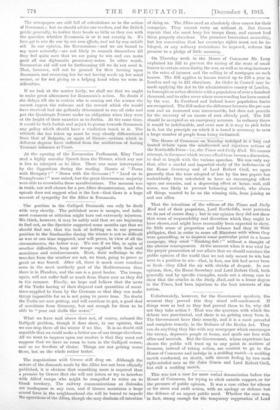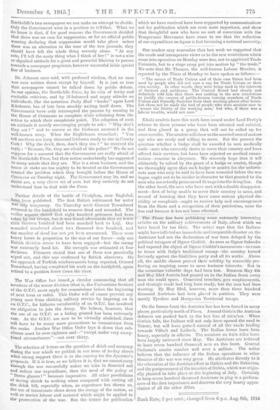This was not a ease for mere verbal denunciation before
the House of Commons, for trying to elicit outside support, or for the pressure of public opinion. It was a ease either for silence or for stern and swift action, with no apology or defence but the defence of an urgent public need. Whether the case was, in fad, strong enough for the temporary suppression of Lord Northcliffe's two newspapers we can make no attempt to decide. Only the Government were in a position to tell that. What we do know is that, if for good reasons the Government decided that there was no ease for suppression, or for an official public warning declaring that suppression would take place unless there was an alteration in the tone of the two journals, they should have left the whole thing severely alone. "At any rate, I'll tell the nasty thing what I think of her !" is not a wise or dignified attitude for a great and powerful Ministry to pursue towards a newspaper proprietor, however successful in his special line of business.





















































 Previous page
Previous page